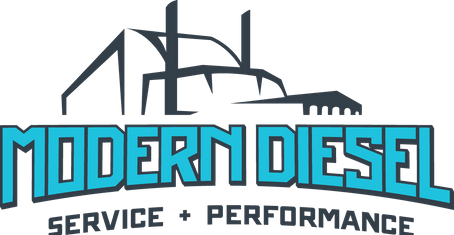Facing DEF sensor errors in your diesel truck? Learn how to diagnose and repair diesel exhaust fluid sensor errors in Texas with Modern Diesel TX’s expert guide.
Diesel trucks across Texas often face DEF system problems, especially sensor errors that can trigger warning lights, performance derates, or even engine shutdowns. These issues hurt uptime and fleet reliability.
In this guide, we’ll walk you through how to diagnose and repair diesel exhaust fluid (DEF) sensor errors in Texas from spotting fault codes to testing sensors and knowing when to call the pros. At Modern Diesel TX, we specialize in DEF system repair, emission compliance, and restoring your truck’s performance.
1. Understand the DEF System & Why Sensors Matter
Before diving into error diagnosis, it helps to know what DEF (Diesel Exhaust Fluid) and DEF sensors do:
- The DEF system is part of the SCR (Selective Catalytic Reduction) system, injecting DEF into exhaust to convert NOx to water and nitrogen.
- DEF systems use sensors (level, quality, temperature) to monitor fluid status and detect anomalies.
- When sensors fail or read incorrectly, the truck’s engine control module (ECM) may throw faults, derate power, or initiate limp mode.
Sensor failures are common in DEF systems and can stem from contamination, crystallization, circuit failures, or damage from heat and vibration.
2. Common Symptoms of DEF Sensor Errors
When a sensor in the DEF system is failing or behaving abnormally, you might notice:
- DEF warning light or error messages on the dashboard
- Sudden engine performance derate (reduced power)
- Sensor codes like DEF level, DEF quality, or tank temperature
- DEF gauge jumps erratically (full to empty)
- In some cases, the ECM may shut down or limit engine operation
These symptoms often indicate a bad sensor or wiring, not necessarily a bad DEF fluid tank itself.
3. How to Diagnose DEF Sensor Errors (Step-by-Step)
Step 1: Retrieve Diagnostic Trouble Codes (DTCs)
- Use a heavy-duty diagnostic scanner to read SCR/DEF system codes (e.g. SPN/FMI codes).
- Common codes include DEF level sensor, DEF temperature sensor, or DEF quality sensor
- Note down the exact codes, their descriptions, and which component is implicated.
Step 2: Inspect DEF Quality & Level
- Check the DEF fluid: it should be clean, certified, and within concentration specs (e.g., ISO 22241).
- Contaminated or diluted DEF can cause sensors to misread.
- Ensure fluid level is not extremely low — low DEF can trigger erroneous sensor alerts.
Step 3: Check Sensor Wiring & Connectors
- Visually inspect the wiring harness at the DEF tank and sensors.
- Look for damage, corrosion, heat damage, or loose connectors.
- Use a multimeter to test continuity and resistance on sensor circuits.
Step 4: Test or Replace the Sensor
- If wiring is good, test the sensor itself (resistance or output values) using manufacturer specs.
- Swap the sensor with another known-good or new sensor to see if the error moves.
- In many cases, replacing the defective sensor resolves the fault.
Step 5: Clear Faults & Re-test
- Clear the codes using your diagnostic tool after repair or replacement.
- Run the engine and monitor for reappearance of the fault.
- Observe DEF gauge behavior, system responses, and confirm normal performance.
4. When the Issue Is More Than the Sensor
Sometimes, sensor replacement doesn’t fix the error because the underlying issue is more serious:
- Crystallized DEF or deposits inside the DEF tank or pick-up can interfere with correct sensing. DEF system contamination or impurities can damage sensors or reduce their lifespan.
- DEF pump or injector problems can produce abnormal pressures or flow, triggering sensor faults.
- In rare cases, the entire DEF sensor assembly or DEF tank might need replacement if it’s integrated or damaged beyond repair.
If sensor change doesn’t fix the issue, further diagnosis in-shop is recommended.
5. Preventing DEF Sensor Errors
Avoid repeat DEF sensor errors in Texas with these maintenance tips:
- Use API-certified DEF fluid to ensure purity.
- Store DEF in a cool, shaded area to combat Texas heat.
- Schedule annual DEF system flushes to remove crystals and debris.
- Inspect wiring during routine maintenance to catch issues early.
- Monitor DEF levels on long hauls across Texas’s I-10 or I-35 corridors.
6. Call Modern Diesel TX for Expert Help
If you see persistent DEF sensor faults even after DIY checks, bring your truck to Modern Diesel TX. We specialize in DEF system diagnostics, emission repairs, and full SCR service in Texas.
Our process ensures accurate diagnosis, proper sensor replacement or repair, and system validation — restoring your truck’s full performance and compliance.
Conclusion & Call to Action
DEF sensor errors can be tricky to pinpoint, but with the right diagnostic approach — reading codes, checking fluid, inspecting wiring, replacing failing sensors — you can often resolve them without replacing large components.
Don’t risk derated performance or emissions violations. Contact Modern Diesel TX today for professional diagnosis and repair of DEF sensor errors in Texas.
FAQ: Diagnosing and Repairing DEF Sensor Errors in Texas
Q: What causes DEF sensor errors in Texas diesel trucks?
A: Contaminated DEF, low fluid levels, faulty sensors, or wiring damage from Texas’s heat and dust are common culprits.
Q: Can I drive with DEF sensor errors in Texas?
A: Driving risks limp mode or engine shutdown, leading to downtime and potential Texas emissions violations. Get it fixed ASAP.
Q: How can I prevent DEF sensor errors in Texas?
A: Use API-certified DEF, store it properly, and schedule regular DEF system maintenance to avoid issues.
